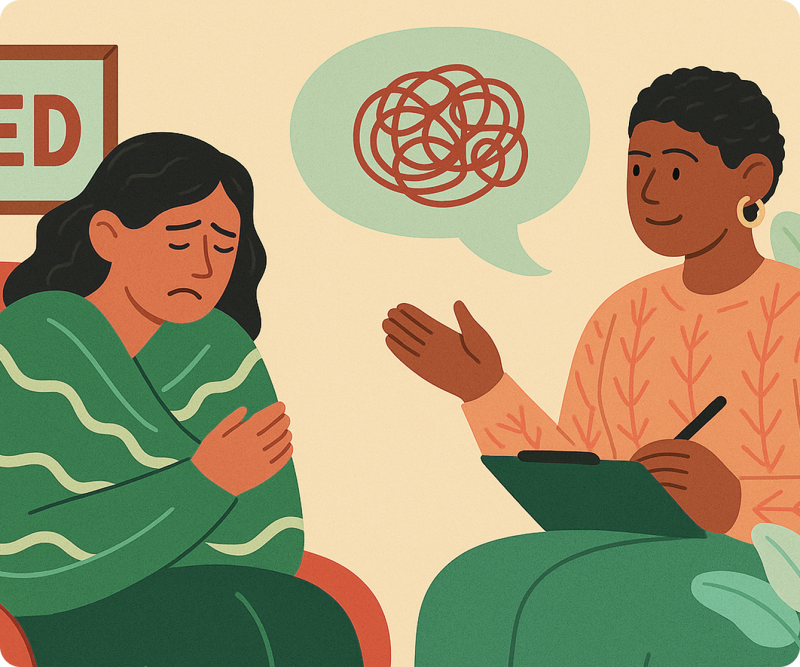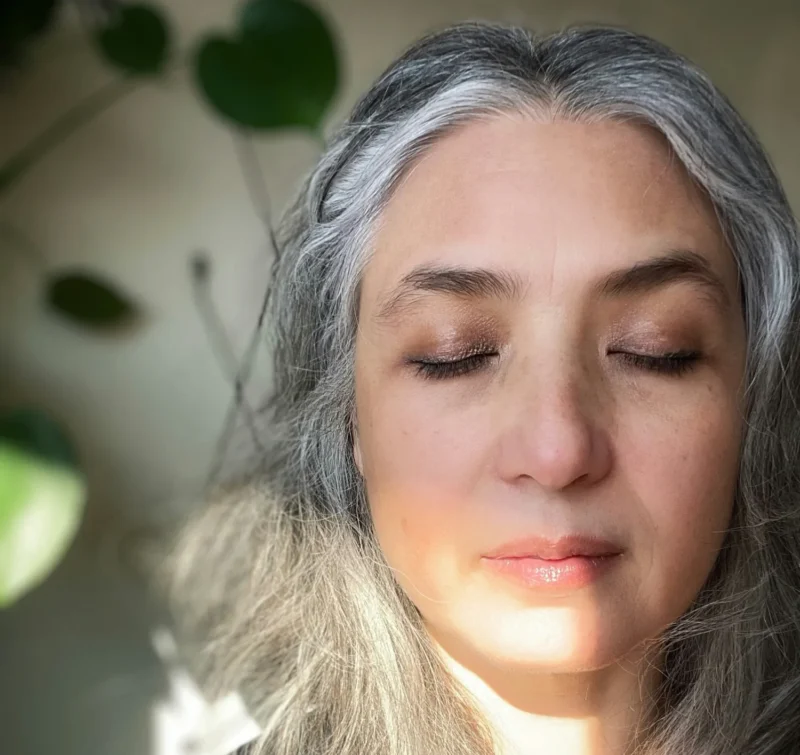
Understanding Intergenerational Trauma
Sometimes the pain we carry isn’t entirely our own. Intergenerational trauma refers to trauma that is passed down from one generation to the next, affecting families and communities across time. This can include the ongoing impacts of historical events, family dysfunction, or cycles of abuse and neglect.
Signs of Intergenerational Trauma
Intergenerational trauma can manifest in family patterns, belief systems, coping mechanisms, and even biological changes that affect how we respond to stress. Understanding these patterns is the first step toward healing—not just for yourself, but potentially for future generations.
Intergenerational trauma can show up in various ways across families and individuals:
- Repeated patterns of relational difficulties, substance use, or mental health challenges across generations
- Family secrets, unspoken rules, or topics that are never discussed
- Chronic hypervigilance, anxiety, or fear without clear present-day triggers
- Difficulty trusting others or forming secure attachments
- Unexplained shame, guilt, or feelings of unworthiness
- Rigid family roles or expectations that limit individual growth
- Difficulty expressing emotions or communicating openly
- Substance abuse patterns that repeat across generations
- Poverty, discrimination, or social disadvantage affecting multiple generations
- Cultural trauma from historical events like war, displacement, or oppression
These patterns often feel “normal” within families because they’ve been present for so long, but they can significantly impact wellbeing and life satisfaction.
Sources of Intergenerational Trauma
Intergenerational trauma can stem from various experiences and contexts:
- Historical trauma affecting communities (war, genocide, colonisation, displacement)
- Childhood abuse, neglect, or family violence across generations
- Parental mental health challenges, substance use, or untreated trauma
- Systemic oppression, discrimination, or social marginalisation
- Poverty, immigration stress, or cultural displacement
- Unprocessed grief and loss affecting family systems
- Cultural practices that perpetuate harmful patterns
- Medical trauma or genetic predispositions to mental health conditions
Parents and caregivers can unknowingly pass on their own unhealed wounds through parenting styles, belief systems, and coping mechanisms.
Breaking the Cycle: Treatment for Intergenerational Trauma
The hopeful news is that intergenerational trauma patterns can be interrupted and healed. At Seed Psychology, our experienced psychologists use approaches including Family Systems Therapy, Narrative Therapy, and Trauma-Informed CBT to help clients understand and transform these deep-rooted patterns.
Therapy can help you:
- Identify and understand intergenerational patterns in your family system
- Separate your own experiences from inherited trauma responses
- Develop healthier coping mechanisms and belief systems
- Process unresolved grief and trauma from previous generations
- Create new, healthier patterns for current and future relationships
- Develop cultural identity and pride while addressing harmful patterns
- Build resilience and post-traumatic growth
- Establish boundaries with family members when necessary
Healing intergenerational trauma is profound work that can transform not only your own life but create positive change for future generations.
Creating Healing Across Generations
Breaking cycles of intergenerational trauma is one of the most meaningful gifts you can give yourself and your family. It takes courage to examine family patterns and choose a different path.
Our culturally sensitive team at Seed Psychology understands the complex dynamics of intergenerational trauma and is here to support you in this important healing work. We respect diverse cultural backgrounds and family systems while helping you create positive change.
Connect with us to book an appointment with a psychologist in our Brunswick clinic or via telehealth Australia-wide.
Through connection,
change is possible
Our compassionate team at Seed Psychology is here to help you regain your wellbeing and navigate life’s challenges with greater confidence and clarity. Connect with us to book an appointment with a psychologist in our Brunswick clinic or via telehealth Australia-wide.
Available resources
Meet our amazing team of therapists
Our diverse team of psychologists offer individual, couples, and online therapy, as well as assessments. Beyond their expertise, they bring humanity and care, providing respectful, affirming support tailored to each person’s unique experience.
Freqeuently asked questions
-
Therapy is a shared process. While your Psychologist brings expertise, insight, and support, the most meaningful outcomes often come when you’re actively engaged in your own growth. This means being open and honest during sessions, reflecting between appointments, and being willing to try new approaches-even when it feels challenging. Therapy can take time, and progress isn’t always linear, but your commitment matters. Here are some ways to support your journey:
- Be open and honest with your Psychologist, even (and especially) if something feels hard to say.
- Give feedback if something doesn’t feel right or if your needs change.
- Stay open to exploring new ideas and practices within a safe, supportive space.
- Take notes or keep a journal to reflect on insights or patterns between sessions.
- Try to attend regularly-consistency is key to building momentum.
- Be kind to yourself. Growth can be uncomfortable at times, but that doesn’t mean you’re doing it wrong.
- Invest in your wellbeing outside of therapy by building habits and routines that nourish you.
Therapy is a courageous act of self-investment. By showing up and staying engaged, you create space for real and lasting change.
-
Our experienced team of Psychologists offers warm, evidence-based support that’s collaborative, inclusive and grounded in genuine understanding. We provide individual, relationship or family therapy for a wide range of concerns. Additionally, we offer couples therapy, online therapy, psychological assessments (including ADHD and Autism Spectrum Assessments), and workshops.
-
There’s no one-size-fits-all answer to how long therapy takes. At Seed Psychology, we tailor each intervention to your individual needs, goals, and circumstances. Some people come to therapy to navigate a specific challenge, like managing anxiety, adjusting to a life transition, or processing a relationship difficulty. Others may be seeking deeper emotional growth or support for longer-term concerns. Because of this, the number of sessions can vary. Many clients attend between 6 and 18 sessions, though some need fewer and others continue for longer. Your Psychologist will discuss an estimated treatment plan with you after your initial assessment and continue checking in over time to ensure it feels helpful and aligned with your goals. Ultimately, the pace and duration of therapy is something we navigate together, guided by your progress, preferences, and what feels right for you.
-
Consultations with a psychologist last between 50 and 60 minutes.
-
At Seed Psychology, your safety and wellbeing are our highest priorities. While we are here to support you through regular therapy sessions, we are not a crisis service and may not be available outside of scheduled appointments. If you or someone you care about is in immediate danger, experiencing a mental health crisis, or needs urgent support, it’s important to seek help straight away through the appropriate emergency or crisis services. You can find a list of trusted organisations and services here that can provide immediate support when you need it most.








